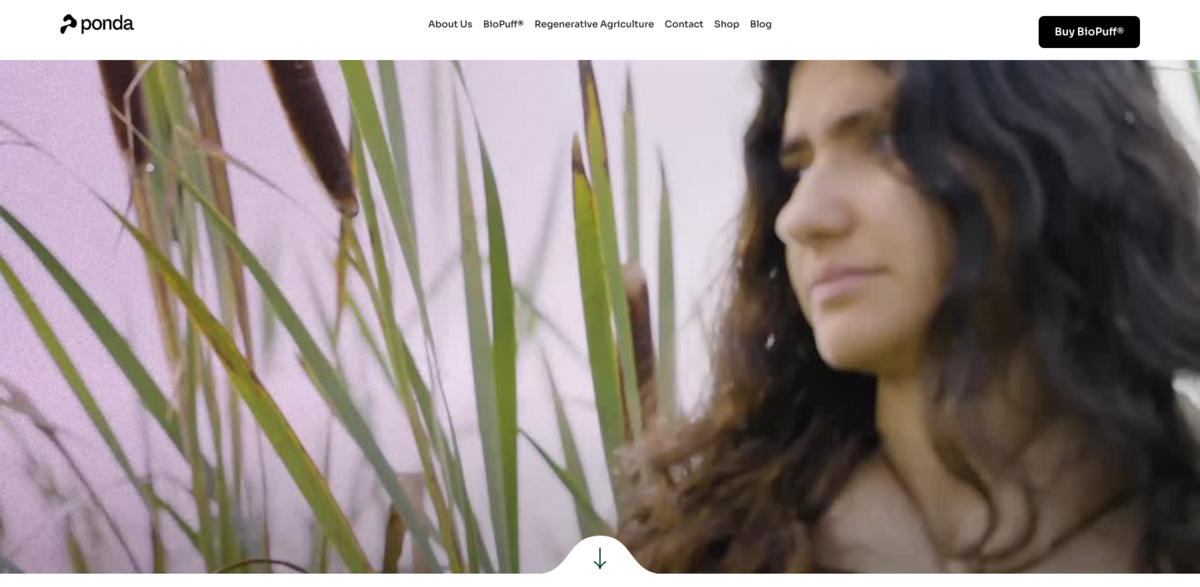What is Ponda?
Ponda is a biomaterials company on a mission to revolutionize textiles by developing novel fabrics from truly regenerative fibres. They’re not just about making materials—they’re about connecting the dots between restoring some of the planet’s most precious ecosystems and creating responsible, sustainable textiles for the fashion industry. The idea? Empower fashion brands to weave regeneration right into the clothes we wear. Pretty cool, right?
The Main Benefit of BioPuff®
BioPuff® is the star of the show here. It’s an insulation material designed to keep you warm while actively regenerating ecosystems. Here’s what makes it stand out:
- Regenerates 10 m² of land per jacket filling replaced
- Abates 40 kg of CO2 emissions per jacket filling
- Lightweight, warm, and naturally water-repellent
- Cruelty-free and fully traceable from plant to puffer
- One of the warmest fill-to-weight ratios on the market
- Reduces reliance on feather and synthetic fillers
How BioPuff® Works
BioPuff® is next-generation insulation made by extracting fibres from plants that help regenerate wetlands. Instead of relying on traditional feather or synthetic fills, this material taps into nature’s own toolkit. It’s lightweight, warm, and naturally water-repellent—perfect for jackets that don’t just keep you cozy but also support the environment. Plus, it’s cruelty-free and traceable all the way back to the plants it comes from. Tested and benchmarked against other fills, BioPuff® holds its own as one of the warmest options out there.
Regenerative Agriculture and Paludiculture
At the heart of Ponda’s approach is paludiculture, or marsh-farming. This is farming on wetlands—think rewetted peatlands, bogs, and fens. These peatlands are some of the oldest, most healing environments on Earth, holding over 40% of all soil carbon—twice as much as all the world’s forests combined. Ponda partners with farmers and conservation groups to bring these wetlands back to life by cultivating Typha latifolia, a plant that’s perfect for rebuilding damaged wetland ecosystems. It grows fast, needs little maintenance, sequesters tons of carbon, creates habitats, and provides high-quality fibre for textiles. Win-win-win.
Biodiversity and Carbon Sequestration
Wetlands are biodiversity hotspots—40% of all plants and animals live and breed there (IUCN, 2020). By re-wetting peatlands and wetlands, Ponda helps create spaces that protect and boost biodiversity. On top of that, these natural wetland environments sequester and store huge amounts of carbon. The numbers speak for themselves: for every 1 kg of BioPuff®, there’s a net carbon reduction of -42.76 kg CO2e. That means the product actually stores more carbon than it emits. Talk about walking the talk when it comes to regenerating the planet!
Project Impact and Sustainable Development Goals (SDGs)
- SDG 13: Climate Action – through carbon sequestration and reducing emissions
- SDG 15: Life on Land – by restoring wetlands and enhancing biodiversity
- SDG 12: Responsible Consumption and Production – via sustainable textile materials
- SDG 8: Decent Work and Economic Growth – supporting farmers with resilient income models
- SDG 2: Zero Hunger – promoting sustainable agriculture practices
Social and Land Use Benefits
Re-wetting lands isn’t just good for the planet—it’s good for people too. Farmers benefit from increased resilience, higher income, and a stacked revenue model that supports social, economic, and environmental interests. Plus, the land use efficiency is impressive: producing 1 kg of BioPuff® requires only 0.002 hectares, compared to 0.067 hectares for goose down (IDFB Report, 2019). That’s a huge difference, making BioPuff® a smart choice for sustainable land management.


















